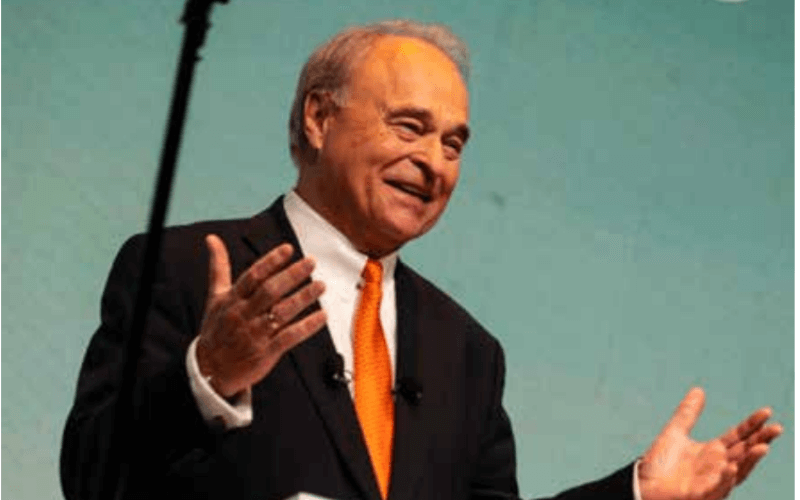The duty-free industry has witnessed unprecedented changes over the past few decades, driven by evolving consumer preferences, technological advancements, and significant global events. As Erik Juul-Mortensen, the long-standing president of the Tax Free World Association (TFWA), steps down, his insights offer valuable perspectives on the current state and future trajectory of this dynamic sector. This article will explore the industry's evolution, the challenges it faces, and the opportunities that lie ahead, reflecting on Juul-Mortensen's observations during his final address.
The Genesis of TFWA
Founded in 1984, the TFWA was the brainchild of two visionaries, Patrick Moniotte and Jean-Philippe Haumont. Their ambition was to reshape the duty-free market by creating a non-profit association that would serve the interests of the industry. Moniotte, working for Parfums & Beauté International, and Haumont from PPL recognized the potential of a unified platform to promote commerce and foster relationships between brands, retailers, and consumers.
In its early days, the TFWA faced skepticism, but the determination of its founders paid off. The first management committee was formed, composed of representatives from various product categories, and they set out to convince brands and retailers to participate in the inaugural TFWA exhibition held in Nice in 1985. This event marked a significant milestone in the duty-free sector, laying the groundwork for future growth and collaboration.
Growth of the Duty-Free Sector
The past 40 years have seen the duty-free and travel retail industry evolve from a modest market generating $5 billion in revenue to a robust sector worth over $60 billion. This growth trajectory is a testament to the industry's resilience and adaptability. Juul-Mortensen highlighted how the sector weathered various crises, including financial downturns, geopolitical conflicts, and natural disasters, as well as health crises like the SARS and COVID-19 pandemics.
Despite these challenges, the industry has remained buoyant, thanks in part to the surge in global tourism. The influx of travelers from countries like Japan, South Korea, and China has played a pivotal role in this growth. Moreover, socio-economic changes have also been instrumental. The advent of package holidays, the rise of low-cost airlines, and the increasing popularity of cruises have made travel more accessible to a broader audience, propelling the duty-free sector into new heights.
A Resilient Industry
The duty-free industry's resilience is further illustrated by its ability to adapt to changing consumer behaviors. Travel has become an integral part of many people's lives, and the duty-free shopping experience has evolved alongside this trend. Modern consumers expect convenience, quality, and personalization when they shop, and the industry has risen to meet these demands.
Juul-Mortensen noted that the industry's adaptability has been a significant factor in its sustained growth. Even in the face of unprecedented challenges, such as the COVID-19 pandemic, the duty-free sector has shown remarkable resilience. As travel restrictions eased and people resumed their journeys, the demand for duty-free goods surged, highlighting the enduring appeal of this shopping format.
The Role of Demographics
As the industry continues to evolve, understanding the demographics of travelers becomes increasingly important. The duty-free market now caters to a diverse range of consumers, each with unique preferences and purchasing behaviors. Baby boomers, millennials, Generation X, Y, and Z all represent different consumer segments, each driven by distinct motivations and values.
Juul-Mortensen emphasized the need for the industry to adapt to these demographic shifts. For instance, millennials and Generation Z prioritize experiences over material possessions, seeking meaningful interactions and unique offerings. This demographic shift has implications for product offerings, marketing strategies, and customer engagement.
The Rise of Personalization
One of the key trends that have emerged in recent years is the demand for personalization. Modern consumers increasingly seek products that reflect their individuality and preferences. As a result, the duty-free industry has responded by offering customized shopping experiences, from personalized product recommendations to tailored marketing campaigns.
Juul-Mortensen highlighted that personalization is particularly resonant with younger travelers who value individuality and self-expression. The industry's ability to cater to these preferences will play a crucial role in attracting and retaining customers in the years to come.
Challenges Ahead
While the duty-free industry has shown remarkable resilience, it faces several challenges that could impact its future growth. Geopolitical tensions, economic fluctuations, and rising concerns about sustainability are among the key issues that the industry must navigate.
Geopolitical Uncertainty
Geopolitical events can have far-reaching effects on global travel and, by extension, the duty-free industry. Political instability, trade disputes, and international relations can disrupt travel patterns and impact consumer confidence. Juul-Mortensen noted that the industry must remain vigilant and adaptable to these changes, fostering relationships with stakeholders to mitigate potential risks.
Economic Fluctuations
Economic uncertainties can also influence consumer spending patterns. Economic downturns may lead to reduced discretionary spending, affecting the demand for luxury goods commonly found in duty-free shops. The industry must continuously assess market trends and consumer behavior to navigate these fluctuations effectively.
Sustainability Concerns
As awareness of environmental issues grows, consumers are increasingly seeking sustainable products and practices. The duty-free industry must address these concerns by adopting sustainable sourcing practices, reducing waste, and promoting eco-friendly products. Juul-Mortensen stressed that embracing sustainability will be essential for maintaining consumer trust and loyalty in the long run.
Opportunities for Innovation
Despite the challenges, the duty-free industry is well-positioned to capitalize on emerging opportunities. The rise of digital technology, changing consumer preferences, and the ongoing evolution of travel present avenues for innovation.
Embracing Digital Transformation
The digital landscape has transformed the way consumers shop and interact with brands. E-commerce, mobile apps, and social media platforms have become integral to the shopping experience. Juul-Mortensen emphasized the importance of embracing digital transformation to enhance customer engagement and drive sales. The duty-free industry can leverage technology to provide seamless online and offline shopping experiences, personalized recommendations, and real-time communication with customers.
Collaborations and Partnerships
Collaborative efforts between brands, retailers, and airports can also create new opportunities for growth. By working together, stakeholders can develop innovative marketing strategies, exclusive product offerings, and unique shopping experiences that cater to the evolving needs of travelers. Juul-Mortensen highlighted the potential for partnerships to enhance brand visibility and customer loyalty within the duty-free space.
Fostering Experiences
Today's travelers are increasingly looking for experiences rather than just products. The duty-free industry can capitalize on this trend by curating unique shopping experiences that go beyond traditional retail. Interactive events, product demonstrations, and immersive brand activations can create memorable encounters for travelers, enhancing their overall journey.
----
As Erik Juul-Mortensen steps down from his role as president of the TFWA, his insights provide a valuable roadmap for the future of the duty-free industry. The sector has come a long way since its inception, demonstrating resilience and adaptability in the face of significant challenges. However, the industry must remain vigilant, addressing demographic shifts, geopolitical uncertainties, and sustainability concerns to thrive in the coming years.
With opportunities for innovation on the horizon, the duty-free industry is poised for continued growth. By embracing digital transformation, fostering collaborations, and focusing on unique experiences, the sector can navigate the evolving landscape and remain relevant to a diverse and discerning consumer base.
As the industry looks to the future, the commitment to excellence and the spirit of collaboration that Juul-Mortensen championed will undoubtedly guide the way forward. The duty-free industry is not just about products; it's about creating connections, enhancing travel experiences, and building lasting relationships with consumers around the world.



